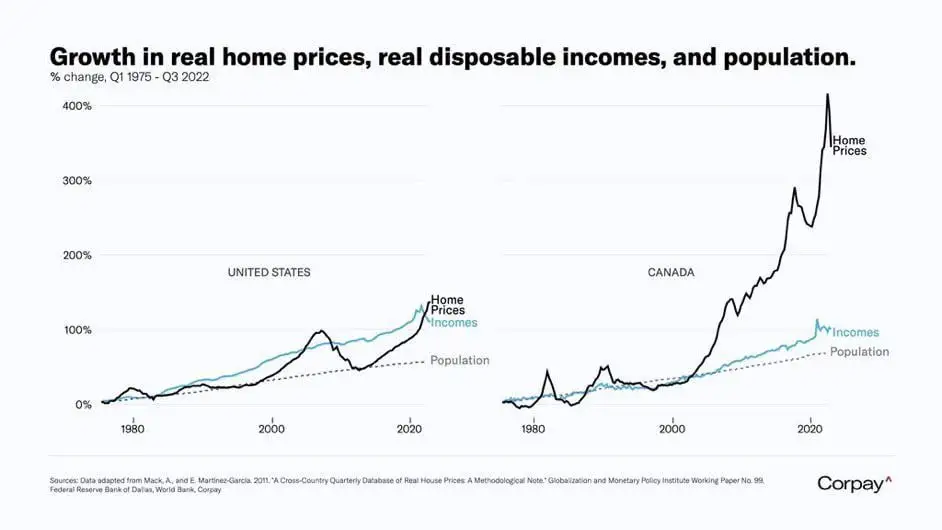this post was submitted on 27 Aug 2023
328 points (97.7% liked)
Data Is Beautiful
8837 readers
2 users here now
A place to share and discuss data visualizations. #dataviz
founded 4 years ago
MODERATORS
you are viewing a single comment's thread
view the rest of the comments
view the rest of the comments

Eh, at least in my experience, interest in most normal mortgages ends up less than the standard deduction so it can't be claimed. It was a change Trump made to the tax code I think. I don't understand enough about it to know if it affects me negatively or not. I know it's better for me to claim the standard deduction instead of itemizing my deductions. This means I can't claim interest paid (which is bad), but the standard deduction is higher than it was before, so I think I'm still claiming more money as untaxable (which is good, I think?).
Maybe someone with more knowledge than me can chip in.
Trump limited SALT deductions, which includes property taxes and state sales and income tax, while doubling the standard deduction. For most people living in high cost areas, especially those in states with an income tax, they would still be able to itemize for more than the doubled standard deduction, but now they can't because of the new limits. (Most) homeowners in high cost states are paying more federal income tax now because of Trump's changes to the tax code.
The standard deduction existed prior to Trump and changes every year, but I'm not sure exactly how it's determined. Under Trump, it was effectively doubled from what it was previously. You can view a historic chart on this Wikipedia page.
Your good/bad assessment is overly simplistic, but essentially correct. In your example, you CAN claim your mortgage interest, OR choose the standard deduction - But in YOUR situation you benefit MORE from the standard deduction.
With a larger standard deduction, those with 'simpler' financial situations benefit from a lowered taxable income amount, without having to do the complex bits of documenting/justifying deductions they claim. - And without the risk of a potential audit.
For example, someone who DOESN'T own their home or have expenses they could deduct, still get their income reduced by that standard amount.
High-complexity situations (rich people) don't benefit from it, and still are required to document and justify their deductions line-by-line.
The US tax system is overly complex and burdensome, but a higher standard deduction is, at least from my understanding, a benefit to the less fortunate that the more well-off don't also benefit from.
I couldn't tell you what income level represents the 'split' between those who benefit from it and those who don't. It has less to do with income and more to do with your broader situation - Mortgage amounts, expenses, etc.